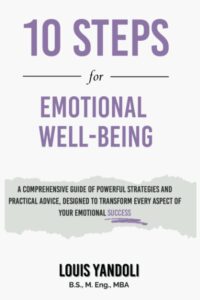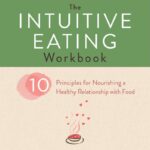As an Amazon Associate I earn from qualifying purchases.
Emotional Well-Being
Building resilience and nurturing emotional well-being have become essential to leading a healthy and fulfilling life in our fast-paced and often stressful world. This comprehensive guide will delve deep into fortifying your mental and emotional strength, helping you navigate life’s challenges with grace and resilience.
Understanding Building Resilience and Emotional Well-Being

What Is Resilience, and Why Does It Matter?
Building resilience means developing the ability to bounce back from adversity, trauma, or significant stress.
It’s about surviving and thriving in the face of life’s hardships. On the other hand, emotional well-being refers to our ability to understand, manage, and navigate our emotions effectively.
These two concepts are closely intertwined, as emotional and the foundation upon which resilience is built.
The Benefits of a Resilient Mindset
Having a resilient mindset offers numerous advantages in both personal and professional life. It helps individuals:
- Cope with Stress: Resilient individuals are better equipped to manage stress, reducing its negative impact on their mental and physical health.
- Adapt to Change: Resilience fosters adaptability, making embracing change and thriving in dynamic environments easier.
- Enhance Relationships: Emotional well-being contributes to healthier relationships, as individuals can communicate and connect more effectively.
- Achieve Goals: Resilience enables goal-setting and achievement, as setbacks are seen as opportunities for growth.
Strategies for Building Resilience and Nurturing
What is Emotional Well-being
Self-Awareness: The First Step
Building resilience begins with self-awareness. Understand your strengths, weaknesses, and emotional triggers. Regularly practice mindfulness and self-reflection to understand your thoughts and feelings better.
Cultivate a Growth Mindset
Embrace challenges as opportunities for growth. Develop a growth mindset that views setbacks as valuable learning experiences. This perspective shift can significantly enhance your resilience.
Foster Social Connections
Strong social connections are a cornerstone of emotional health. Nurture your relationships, seek support when needed, and offer support to others. Social bonds provide a safety net during tough times.
Practice Stress Management
Effective stress management techniques are essential for resilience. Incorporate yoga, meditation, or deep breathing exercises into your daily routine to reduce stress and enhance emotional happiness.
Set Realistic Goals
Setting achievable goals provides a sense of purpose and direction. Break larger objectives into smaller, manageable steps, and celebrate your progress.
Seek Professional Help When Needed
There is no shame in seeking professional help when facing overwhelming challenges. Therapists, counselors, and support groups can offer valuable guidance and support in need.
Embrace a Healthy Lifestyle
Physical and emotional health are closely linked. Maintain a balanced diet, engage in regular physical activity, and ensure you get enough sleep. These habits lay a strong foundation for emotional well-being.
The Role of Building Resilience in Mental Health
Building resilience is instrumental in maintaining good mental health.
When you are resilient, you are better equipped to handle stressors, preventing them from snowballing into mental health issues like anxiety and depression.
Building Resilience and Emotional Well-Being at Work
The workplace is often a significant source of stress for many individuals.
Therefore, applying the principles of building resilience and nurturing emotional well-being in your professional life is crucial.
Here are some strategies for doing so:
Manage Workload and Prioritize Tasks
One key to reducing workplace stress is effective time management.
Prioritize tasks, set realistic deadlines, and avoid overcommitting.
This approach will help you maintain a sense of control over your work.
Establish Boundaries
Maintaining a healthy work-life balance is essential. Set clear boundaries between your professional and personal life.
Avoid checking work emails or taking calls during your time to recharge and relax.
Seek Support and Feedback
Don’t hesitate to seek support and feedback from colleagues and supervisors.
Open communication can lead to a better understanding of expectations and reduce workplace stress.
Embrace Continuous Learning
A willingness to learn and adapt is a hallmark of resilience.
Continuously seek opportunities for skill development and professional growth.
This proactive approach can enhance your confidence and resilience in the workplace.
Building Resilience and Emotional Well-Being in Relationships
Strong and healthy relationships play a significant role in our emotional well-being.
Here’s how to apply the principles of building resilience and nurturing emotional well-being in your relationships:
Effective Communication
Communication is the foundation of any successful relationship.
Practice active listening and assertive communication. It helps prevent misunderstandings and fosters emotional connection.
Conflict Resolution
Conflict is a natural part of any relationship. Develop conflict resolution skills to navigate disagreements constructively.
Remember, conflicts can be opportunities for growth and understanding.
Empathy and Compassion
Cultivate empathy and compassion in your relationships.
Understand and validate the emotions of others, fostering trust and emotional well-being in your connections.
Quality Time Together
Spend quality time with loved ones.
Create memorable experiences and strengthen your emotional bonds. These moments contribute significantly to emotional well-being.
Building Resilience and Emotional Well-Being in Adversity
Life is not always smooth sailing, and adversity is inevitable.
However, building resilience can help you face adversity head-on
Positive Self-Talk
Monitor your inner dialogue.
Replace negative self-talk with positive affirmations. This can bolster your self-esteem and resilience in challenging times.
Seek Meaning
Find meaning in adversity.
Ask yourself what you can learn from difficult experiences and how they can contribute to your growth.
Build a Support Network
Lean on your support network during tough times.
Friends and family can provide emotional support, lending strength to your resilience.
Conclusion
In conclusion, building resilience and nurturing emotional well-being are lifelong journeys that require dedication and practice.
By understanding the importance of resilience, adopting strategies to enhance it, and prioritizing emotional, you can lead a happier, more fulfilling life.
Remember, it’s not about avoiding adversity but about developing the strength to thrive in the face of it.
So, embark on this journey towards building resilience and emotional well-being, and you’ll find yourself better equipped to face life’s challenges with grace and resilience.
With these strategies in mind, you can build a solid foundation for resilience and emotional well-being, ensuring you survive and thrive in life’s ever-changing landscape.
So, take the first step today and embrace the power of building strength and nurturing your emotional self.
FAQ:
- The key components of emotional well-being include self-awareness, emotional regulation, resilience, positive relationships, and a sense of purpose or fulfillment.
Several factors can help emotional well-being, such as practicing mindfulness, seeking social support, engaging in regular physical activity, managing stress, and maintaining a healthy work-life balance.
Emotional well-being in adults refers to their overall mental health and emotional state. It encompasses feelings of happiness, contentment, and a sense of psychological well-being.
Yes, emotional well-being is important as it contributes to overall life satisfaction and quality. It can impact physical health, relationships, and one’s ability to cope with life’s challenges effectively.
Emotional well-being, also known as emotional health, refers to an individual’s state of mental and emotional balance. It encompasses the ability to understand and manage one’s emotions effectively, experience positive feelings, cope with life’s challenges, build and maintain healthy relationships, and find a sense of contentment and fulfillment in daily life. Emotional well-being is an important aspect of overall mental health and contributes to a person’s overall quality of life and happiness.
Amazon and the Amazon logo are trademarks of Amazon.com, Inc or it's affiliates.
Related Posts
- Best Tips to Stop Stress Eating
Best Tips to Stop Stress Eating In today's fast-paced world, stress has become an inevitable…
- Positivity Its Impact on Health
Positivity and Its Impact on Health Positivity: The Path to a Healthy Lifestyle and Overcoming…
- The Benefits of Meditation
The Benefits of Meditation Meditation is a practice that has gained immense popularity in recent…











